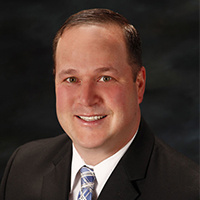 Reno DUI-DWI Lawyers, Nevada
Reno DUI-DWI Lawyers, Nevada
Sponsored Law Firm
-
 x
x

Click For More Info:
-
Keches Law Group
122 Dean Street Taunton, MA 02780» view mapSocial Security, Personal Injury, Workers Comp. Protecting Your Rights
Our team of experienced personal injury attorneys has over 130 years of combined experience representing individuals and families injured due to the negligence of others.
800-713-8650
Sponsored Lawyers
1-6 of 6 matches
Criminal, DUI-DWI
In Jenny Hubach’s 26 years of legal experience, she has represented thousands of criminal defendants in cases from Capital Murder through trucker traffic tickets. After receiving her Juris Doctor Degree from McGeorge School of Law, she became a member of the Nevada State Bar in 1989. In Jenny’s early career, she was a Deputy District Attorney in Washoe County, Nevada representing the state in criminal cases. She left the DA’s Office and began representing clients in personal injury cases before going into private practice and representing criminal defendants until present. Jenny’s professional accomplishments consist of extensive criminal trial experience, professional recognition, and leadership positions in professional organizations both on the State and National level to include: *Lead attorney in 1000’s of criminal cases in Northern and Southern Nevada. *Has been attorney in approximately 75 jury trials to include 5 Death Penalty murder cases and numerous other murder cases. *18 years as Judge Pro Tem in Reno Justice Court and Reno Municipal Court. (Presided as Judge in hundreds of civil and criminal cases such as small claims, landlord/tenant, general civil, DUI, Domestic Battery, and theft crimes.) *Current Chairperson of The Nevada Continuing Legal Education (CLE) Board. *Current member of the National Mandatory Continuing Legal Education Regulators. (Chairperson of the Las Vegas meeting which was ranked as the most successful national meeting ever, 02/2014). *Reno News and Review, Attorney of the Year, 2006, 2014. *BV Rated by Martindale-Hubble in Legal Ability and Ethical Standards. *Top 100 Criminal Defense Attorneys, 2014. *Former member of the Nevada State Bar Board of Governors. *Former Chairperson of the Nevada State Bar Advertising Review Committee. *Former Chairperson for the Second Judicial District Court Committee to Establish Local Criminal Procedure Rules. *Former member of the Nevada State Bar CLE Committee. *Former Adjunct Professor in Criminal Law, University of Nevada and Truckee Meadows Community College.
(more)Estate, Divorce & Family Law, DUI-DWI, Accident & Injury
David C. O’Mara’s practice is concentrated in appellate advocacy, bankruptcy, family law, personal injury, civil litigation, and securities and shareholder disputes. As a native Nevadan, with over a decade of experience practicing in the state, David has developed a comprehensive understanding of the nuances of Nevada law and practice. David has been involved in numerous securities and shareholder actions which have resulted in the recovery of millions of dollars to the shareholders. In addition, David has successfully represented his clients at all state and federal courts in Nevada, including bench trials, jury trials and appellate arguments in the Nevada Supreme Court.
(more)


 Sean Flaherty Taunton, MA
Sean Flaherty Taunton, MA AboutKeches Law Group
AboutKeches Law Group Practice AreasExpertise
Practice AreasExpertise


